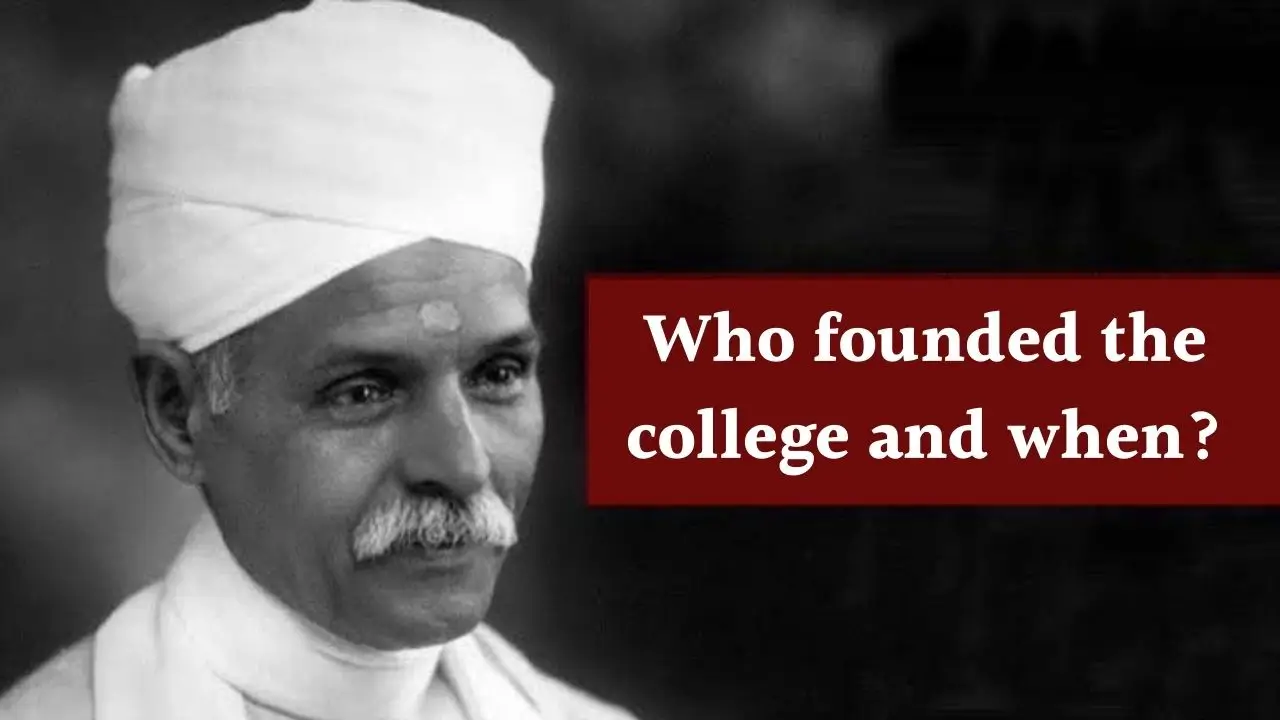Educational institutions often represent not just centers of learning, but also symbols of a community’s commitment to knowledge, progress, and social development. One such institution is Madan Mohan Malviya Inter College. Named after the great freedom fighter, visionary leader, and educationist Pandit Madan Mohan Malviya, the college has stood as a beacon of education for decades. Understanding who founded it and when provides a deep insight into its legacy and continuing role in shaping young minds.
The Founder: Pandit Madan Mohan Malviya
Madan Mohan Malviya Inter College was founded by Pandit Madan Mohan Malviya, a renowned nationalist leader who played a crucial role in India’s independence movement and in the promotion of education for all.
About Pandit Madan Mohan Malviya:
- He was born in 1861 in Allahabad, Uttar Pradesh.
- Known as “Mahamana,” he was an educationist, freedom fighter, and a man of immense cultural vision.
- He founded the Banaras Hindu University (BHU), one of Asia’s largest residential universities, in 1916.
- Malviya strongly believed that education should be a blend of traditional Indian values and modern scientific learning.
In line with his philosophy, he initiated schools and colleges at different levels to spread quality education, one of which is the Madan Mohan Malviya Inter College.
Establishment of the College
The Madan Mohan Malviya Inter College was established in the memory and vision of Pandit Madan Mohan Malviya in the early 20th century. The exact year of establishment may vary depending on the institution’s location (since there are several inter colleges under his name across Uttar Pradesh), but they all trace their inspiration back to Malviya’s work during his lifetime and in the years immediately following his great contributions to the Indian education system.
Objective Behind Its Foundation
- To provide affordable education to students from all sections of society.
- To instill discipline, moral values, and cultural awareness in young learners.
- To create future citizens who would contribute positively to nation-building.
- To carry forward Malviya’s vision of education that integrates ethical values with academic pursuits.
Educational Philosophy of the Institution
Madan Mohan Malviya Inter College has consistently followed its founder’s educational ideals:
- Holistic Education: Emphasis on both academics and character development.
- Cultural Values: Preservation of Indian traditions while embracing modern knowledge.
- Discipline and Simplicity: Encouraging a code of conduct among students that fosters respect and responsibility.
- Equal Opportunities: Focus on providing education to students from rural and urban backgrounds without discrimination.
Growth and Development Over the Years
Since its establishment, the college has grown in stature and reputation.
Key developmental highlights include:
- Expansion of academic streams including Science, Arts, and Commerce.
- Introduction of extracurricular activities such as debates, dramatics, sports, and cultural events.
- Upgradation of library and laboratory facilities to match modern educational requirements.
- Increased commitment to digital learning tools in recent years.
Table: Quick Facts About Madan Mohan Malviya Inter College
| Attribute | Details |
|---|---|
| Founder | Pandit Madan Mohan Malviya |
| Establishment Period | Early 20th Century (inspired by Malviya’s educational movement) |
| Named After | Mahamana Pandit Madan Mohan Malviya |
| Core Objective | Provide affordable, value-based, and quality education |
| Location(s) | Multiple across Uttar Pradesh (formed in line with Malviya’s ideology) |
| Educational Streams | Arts, Science, Commerce |
| Motto | Holistic development with cultural and moral values |
Legacy of the College
The institution continues to serve thousands of students, cementing its role as a lasting tribute to Pandit Madan Mohan Malviya’s vision. Its alumni have contributed to various fields such as teaching, administration, public service, and entrepreneurship.
The college remains especially acclaimed for:
- Its sustained focus on discipline and high educational standards.
- Producing well-rounded individuals who excel not only academically but also in cultural and social spheres.
- Keeping alive the cultural revival that Malviya advocated throughout his life.
Latest Updates Related to the College
With the evolving educational landscape, Madan Mohan Malviya Inter College has embraced changes while preserving its traditional values:
- Digital Education: In recent years, the institution has increasingly focused on smart classes and e-learning resources to adapt to modern educational needs.
- Skill Development Programmes: Skill-based workshops in computer literacy, communication, and vocational training have been introduced to prepare students for a competitive world.
- Sports and Cultural Growth: Expanded initiatives in sports meet at district and state levels, along with cultural fests that showcase students’ talent.
- Environmental Initiatives: Active participation in environmental awareness programs such as tree plantation drives and eco-friendly campus movements.
- Community Engagement: Workshops, seminars, and awareness programs aligning with government initiatives like “Beti Bachao, Beti Padhao” and “Digital India.”
Importance of Remembering Malviya’s Vision
The role of Madan Mohan Malviya Inter College is not limited to educating students but also to carrying forward a historic legacy. Remembering its founder’s values ensures that each new generation understands the importance of:
- Education as a tool for empowerment.
- Blending patriotism with personal growth.
- Striving for excellence while upholding moral and cultural integrity.
Conclusion
Madan Mohan Malviya Inter College stands as a timeless reminder of Pandit Madan Mohan Malviya’s dedication to education and nation-building. Founded in his vision during the early 20th century, the college remains a reputed institution known for its academic standards, discipline, and community engagement. As it evolves with modern trends, it continues to hold true to its founding ideals—proving that Malviya’s philosophy of combining tradition with modern education remains relevant even today.



















